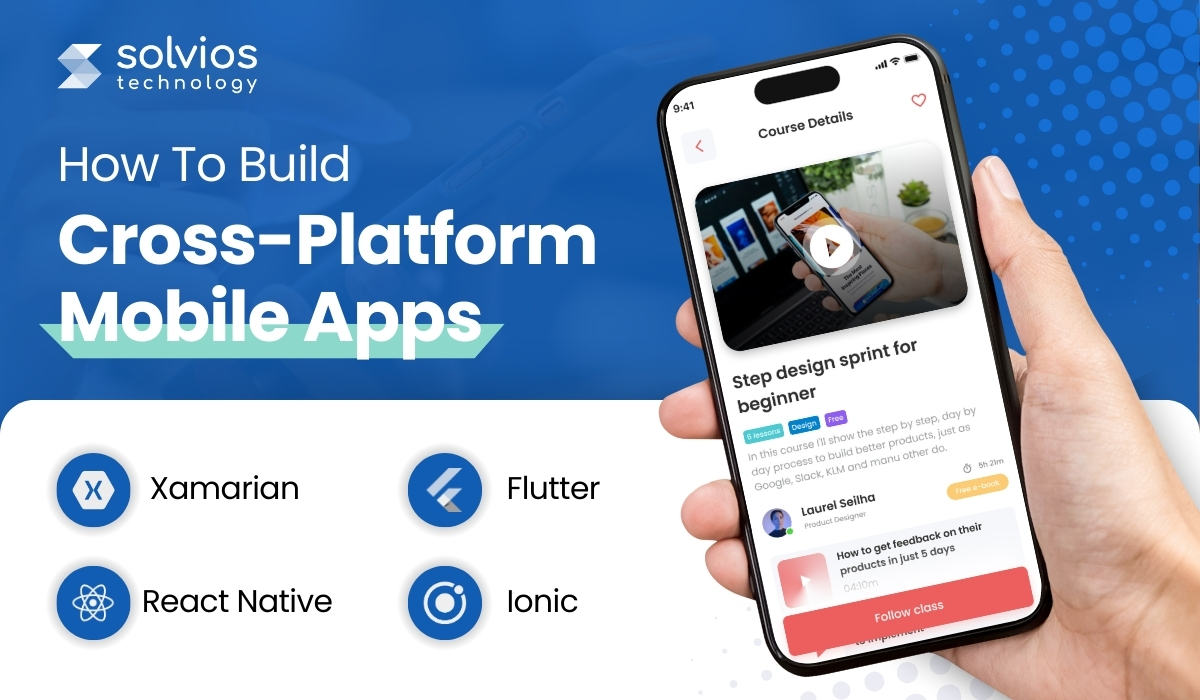Month: January 2025
Summary
When exploring the possible CRM (Customer Relationship Management) platforms, you can’t miss out on HubSpot, one of the global market leaders in this space. It’s the best marketing, sales, and service tool, serving over 238,000+ customers across 135+ countries. It is the perfect CRM for businesses at every growth cycle stage.
Sadly, however, even with a significant increase in organizations opting for the platform, many cannot fully utilize it.
Many companies that use HubSpot don’t know how to implement an effective customer relations strategy. While they know how to create blogs, send emails, and participate in social media, they’re unable to develop a strategy to attract more leads or traffic.
Interestingly, this is where professional HubSpot consulting services step in. These professionals help you streamline your workflow and tweak your strategies or campaigns for better results.
But how do you know it’s time to connect with a HubSpot consultant?
Let’s find out as we learn more about the different aspects of their services in the following sections.
Who is A HubSpot Certified Partner?
A HubSpot consultant is a certified partner who helps you develop advanced automation workflows, add API integrations, and improve your CRM database for better optimization.
Think of Hubspot consulting providers as your added IT support. These experts understand how to streamline your workflow using the correct modules and support responses. What’s more? Your HubSpot partner also helps you set up your portal, align it with your operations, and ensure it matches your branding and goals.
When Should You Meet A HubSpot Consultant for Your Business?
You might wonder, ‘When is the right time to connect with a HubSpot consultant?.’ The answer is anytime! Yes, you can connect with the CRM consultant at any integration stage, either at the beginning or once you find these telltale signs from your operations:
1. You need a personalized HubSpot CRM for your operations:
Although HubSpot is a great CRM for nearly every industry, you can’t expect it to boost your business without customization. Adding relevant modules to your CRM allows you to personalize your operations and add to customer relations. However, choosing between hundreds of related modules can be challenging for any business.
Interestingly, that’s where HubSpot partners take the time to understand your company’s procedures and difficulties. They work with you to guarantee a HubSpot solution tailored to your requirements. They also assist in training your team members to use your software as efficiently and effectively as possible.
2. You need access to exclusive HubSpot resources:
Running an inbound marketing campaign can be challenging, especially when you don’t have the right HubSpot resources. Besides, even with the resources necessary, running campaigns seamlessly can be a hassle if you don’t have the knowledge and expertise around HubSpot.
Interestingly, that’s where things are different with a certified HubSpot Partner. These experts give you access to unique tools that may boost your marketing efforts. From industry standards to best practices, these tools can help you remain ahead of the competition. It’s like having an expert guide your marketing campaigns to success.
3. You need an expert’s insight in scaling your operations:
Your marketing and sales requirements will change as your team evolves. It’s essential to stay updated with the latest CRM to ensure the platform aligns with your scaling operations. Managing your CRM while scaling your operations can be a hassle, especially if your team is unprepared.
However, that’s where premier HubSpot partners help you scale your operations by optimizing your CRM. These experts integrate advanced modules to ensure your strategies evolve with your business so that you can focus on the core aspects of your customer services.
4. You need access to advanced workflow automation:
A qualified HubSpot partner uses advanced workflow automation to improve your company operations. They create and deploy automated email sequences, lead nurturing efforts, and sales funnel optimizations to minimize manual involvement.
Businesses that use HubSpot’s workflow solutions may assure regular follow-ups, task allocations, and data-driven decision-making, eventually increasing productivity and customer engagement. What’s more? These professionals may also provide tips on marketing your campaigns to maximize your efforts.
5. HubSpot seems challenging to implement on your own:
As a CRM, HubSpot introduces you to various features that can be leveraged as your business grows. Many companies may not instantly use all of HubSpot’s capabilities or understand how to use them when adopting an inbound marketing plan.
While this sounds normal, it significantly impacts the efficiency of their overall workflow. For instance, your sales team might still be using traditional methods of connecting with clients even though HubSpot offers call-tracking features for convenience. In such cases, it’s best to connect with a HubSpot consultant who can help your sales team maximize sales.
Quick Tips: How to Ensure Successful Collaboration with Your HubSpot Partner?
So you’re ready to onboard a Hubspot consulting company for your brand? That’s great! But before you collaborate, follow these quick tips to ensure a successful collaboration:
Set Clear Expectations
It may sound simple, but this is where many initiatives can go wrong. Set clear expectations with your HubSpot partner about the timelines, budget, and other relevant details about your work. Remember, it’s always a good idea to set clear expectations to avoid the ‘what next’ situation.
Talk About Success Metrics
You want to know how well you’re doing in the race, not just after you cross the finish line. Therefore, we suggest discussing the KPIs (Key Performance Indicators) with your HubSpot partner. These metrics include the milestones, ease of data transfer, and the success of the new procedures. Defining these up front keeps everyone responsible and on track.
Communicate With Your Partner
Proactive communication between your HubSpot partner and yourself is the key to success in your operations. You don’t want to chase them for updates, and they don’t want to chase you for confirmations. Therefore, ensure you agree on how frequently you’ll communicate, whether a weekly call or a fast email check-in. Remember, you should always feel included without having to ask.
Choosing the Right HubSpot Partner with Solvios Technology
Collaborating with the ideal HubSpot partner is the key to a successful business. Therefore, it is essential to choose a partner who understands your expectations and helps you align with your business goals.
As a HubSpot partner, Solvios Technology offers multiple tools and services to streamline business efforts. We’ve helped numerous organizations change the way they operate and add to their growth. Visit us today!
About Author

Dhwani Shah is the Co-Founder of Solvios Technology. She focuses on building strong relationships, guiding teams, and helping businesses move forward with clear direction. Her perspective comes from real-world experience, thoughtful leadership, and a genuine passion for creating long-term value for clients and partners.
Let’s ConnectTurn Insights Into Action
Planning something next? Let’s turn ideas into action.
Summary:
The world of cross-platform mobile applications has revolutionized app development.
Yes, it’s true! Nearly 1/3rd of mobile developers use or plan to leverage cross-platform frameworks for upcoming projects.
Wonder why?
The answer’s simple: A cross-platform framework helps developers create apps that operate in complete synergy on different OS (Operating Systems), such as iOS and Android. It saves time, reduces cost, enables reusable codes, and delivers a consistent user experience across devices.
This guide examines cross-platform mobile app development fundamentals, popular inspection frameworks, and key strategies for ensuring your application runs perfectly on all devices.
In the following sections, we will cover:
- What is a Cross-Platform Mobile App?
- Benefits of Cross-Platform Mobile App Development
- Popular Cross-Platform App Development Frameworks
- Tools and Frameworks to Test Cross-Platform Apps
- Challenges in Cross-Platform Mobile App Development
Whether you’re an iOS developer, an Android developer, or both, this blog will give you insights into streamlining your process and creating apps that resonate with users worldwide. Let’s get started!
What Is A Cross-Platform Mobile App?
A cross-platform mobile application is designed to run smoothly on multiple platforms using a single codebase. The cross-platform methodology involves building an application that can run on multiple operating systems. It uses various frameworks or technologies, such as React Native, Xamarin, and Flutter, to run on different operating systems, such as Android, iOS, and Windows.
Using specialized tools and frameworks allows developers to write once and then run the application on other platforms. This approach to app development saves time, effort, and money while ensuring a consistent user experience across devices.
Benefits of Cross-Platform Mobile App Development
There has been a significant increase in businesses opting for native mobile applications. Let’s explore some key benefits of cross-platform mobile app development in this section:
Mobile App for Multiple Platforms:
The most notable advantage of developing a cross-platform framework is its usability. The final product can be utilized on various systems without changing the code. This technique is best suited when organizations require an app with seamless functionality and have less time to market.
Reduced Development Cost:
A typical tech product requires three different development workflows: iOS, web, and Android. However, that’s where cross-platform mobile app development services save you the cost of development while reducing the needed effort to less than half.
Agile Development Process:
Using a single code base promotes agile methodology. Once you switch to a single code base, it becomes easier to diversify the time requirement for development. You can optimize the workload between native, web, and hybrid development loads.
Simpler Code Maintenance & Usability:
Having a single code base for different platforms implies easy modifications. With a single set of changes to the code, you can easily add or remove functionality, giving you the freedom to prioritize other crucial aspects of your operations.
Access to A Uniform Design:
Although it can be challenging in certain circumstances, cross-platform development helps you produce consistent design results. It allows different cross-platform mobile application development services to leverage responsive design ideas to split functionality between the front and back ends.
Popular Cross-Platform App Development Frameworks
Cross-platform frameworks allow developers to write a single codebase that can be used across multiple platforms. Interestingly, however, there’s not one but several frameworks they can use to leverage different app functionalities.
Therefore, in this section, we look closely at some of the most popular frameworks used by some of the leading cross-platform mobile app development agency.
#1 Xamarian
Microsoft-owned Xamarin is among the top frameworks experts use. This open-source, cross-platform app development framework is widely used to develop native cross-platform Windows, Android, and iOS apps in C# and NET. Xamarin apps are designed using native user interface controls, resulting in a high-performance user experience.
#2 React Native
React Native is another popular framework used widely by cross-platform developers. Owned by Meta (formerly Facebook), this open-source framework uses JavaScript and TypeScript to develop apps for iOS, Android, and Windows.
#3 Flutter
When it comes to open-source, cross-platform frameworks, you can’t miss Flutter. Owned by Google, many cross-platform mobile app development services use Flutter to develop Windows, Android, and iOS applications with Dart. Some examples of Flutter apps include Google Ads, Alibaba, BMW, and Tencent.
#4 Ionic
Ionic is an open-source framework for developing cross-platform apps using web technologies such as CSS, HTML, and JavaScript. It enables developers to build hybrid apps from a single codebase and supports Vue.js, Angular, and React frameworks. Examples of Ionic development include McDonald’s and MarketWatch.
#5 Unity
Framework is another popular open-source, cross-platform tool for building hybrid web and mobile apps. It allows experts to leverage a native-like look and feel and is often combined with React or Vue.js for premier results.
Tools and Frameworks to Test Cross-Platform Apps
Testing your cross-platform mobile apps is crucial to ensure consistent user experiences of your products. Here are some top tools developers rely on for efficient testing:
BrowserStack App Automate
BrowserStack App Automate allows users to test cross-platform apps on actual Android and iOS devices. It enables users to test various OS versions and device combinations in real-world situations and native capabilities such as Network Simulation and Camera Injection.
BrowserStack App Live
BrowserStack App Live allows developers to test cross-platform apps manually on real iOS and Android devices with different OS versions. It enables testing under user conditions and uses network simulation, biometric authentication, and IP geolocation testing features.
Appium
Appium allows you to test cross-platform mobile apps because it supports iOS and Android platforms. Appium Grid will enable you to run several tests simultaneously. It can test both native and cross platform mobile applications.
Selenium
Selenium enables mobile automated testing in addition to testing web apps. It supports several programming languages, including Java, Python, C#, and JavaScript.
Challenges in Cross-Platform Mobile App Development
Developing a mobile app that works seamlessly across different platforms sounds ideal but has hurdles. Here are some common challenges developers face:
- Limited Compatibility: Each platform, like Android and iOS, has unique design guidelines, system requirements, and hardware capabilities. Ensuring your app performs consistently on both can be tricky and may require compromises in design or functionality.
- Performance Limitations: Cross-platform frameworks, while convenient, may not match the performance of native apps. Apps relying on heavy animations or complex features can suffer from slower load times or reduced responsiveness compared to their native counterparts.
- Limited Access to Native Features: Some frameworks may not fully support all native features of a platform. This limitation can restrict the app’s functionality or require additional workarounds, increasing development time.
- Testing Complexities: Testing a cross-platform app is complicated because you must test how the app will function on different devices, operating systems, and screen sizes. Consistency in minute detail may create inconsistencies in user experience.
- Maintenance and Updates: It’s complex to test a cross-platform application because it has to test how it works on different devices, operating systems, and screen sizes. Even a tiny inconsistency might create inconsistencies in the user experience.
Conclusion
Cross-platform mobile app development is highly beneficial as it reduces the development cost, saves time, and increases the reach to a broader audience. With frameworks like Flutter, React Native, and Xamarin, developers can create efficient, high-quality apps for multiple platforms from a single codebase.
However, challenges like platform compatibility, performance issues, and limited access to native features still exist. These obstacles can be overcome using the correct tools and testing strategies and collaborating with the right cross-platform mobile application development company.
Cross-platform development is a workable and economical approach to expand across markets. Don’t miss the opportunity to scale your operations to the next level; connect with our experts at Solvios Technology today!
About Author

Dhwani Shah is the Co-Founder of Solvios Technology. She focuses on building strong relationships, guiding teams, and helping businesses move forward with clear direction. Her perspective comes from real-world experience, thoughtful leadership, and a genuine passion for creating long-term value for clients and partners.
Let’s ConnectTurn Insights Into Action
Planning something next? Let’s turn ideas into action.

















